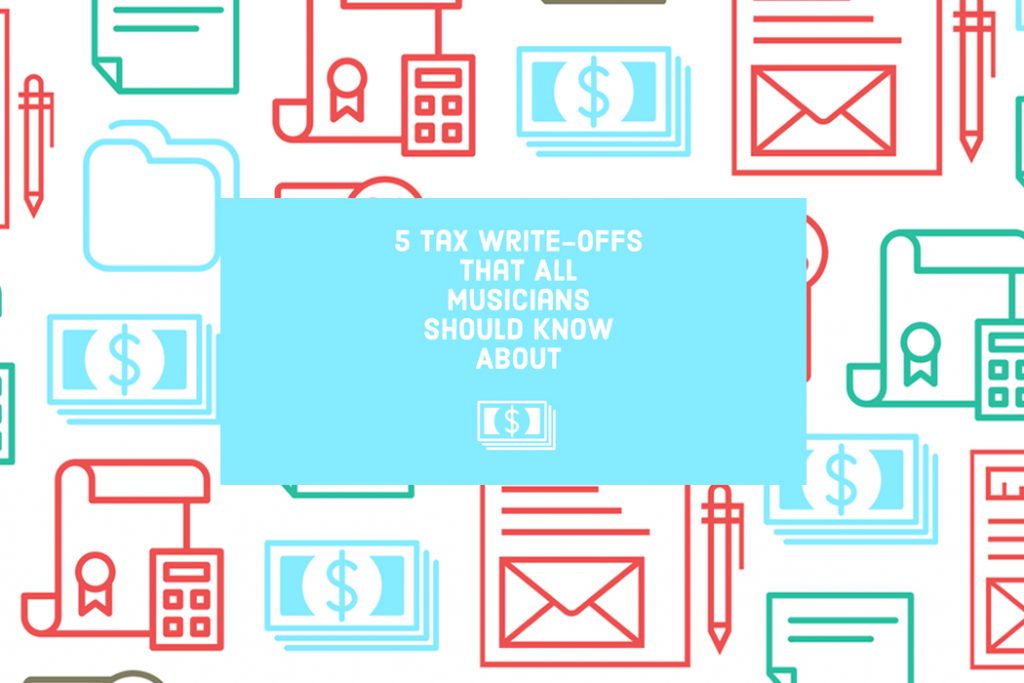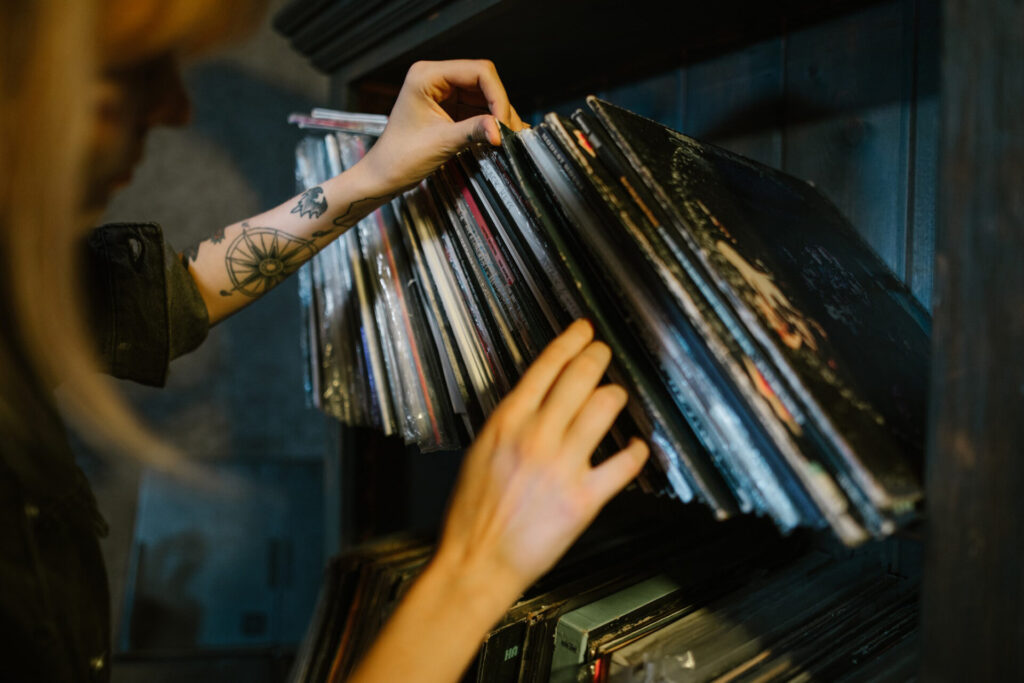+ Learn from Grammy-winning pop artist Kimbra how to harness the full creative potential of your voice in song. Check out her course.
*Disclaimer: The information contained in this article is general legal information only. Consult your attorney for all specific considerations.
Though what we do as musicians is motivated primarily by a love for music and being creative, it’s important to also remember that music is a business as well. And with that in mind, you should make it your business to be as informed and knowledgeable as possible about how the music business works.
One of the biggest voids I’ve seen is in the world of taxes. I see musicians throw away countless dollars year after year that could have been reinvested back into their gear, studio time, and it’s all because they don’t know anything about the deductible write-offs that are available to them.
According to the IRS, you are “self-employed” as a working musician, meaning you can deduct business expenses as long as they are: ordinary and necessary, not lavish or extravagant under the circumstances, and incurred in connection with your profession.
With that in mind, here are five tax write-offs that you should start taking advantage of during this tax season.
1. Music Gear, Equipment, and Software
Since 2014, the IRS has allowed taxpayers to “expense” up to $500,000 of equipment. Plus, you’re able to write off the full cost of the purchase! You can expense your necessary equipment purchases, including: instruments, PA systems, cables, mics, music books, software packages, hardware for a home studio, and everything in between. Depending on the type of equipment, the depreciation can be written off between one and seven years.
2. Home Studio/Office
As long as you have a dedicated space in your home that is exclusively used for your music business, then you may be able to qualify for a home office deduction! Whether it’s a home recording studio, rehearsal space, equipment storage, teaching studio, or office space that you use for meetings, accounting, record keeping, etc. — this is something you should definitely look into.
The formula for calculating the home office deduction is based on the square footage of the business portion of the home vs. the total square footage of the home, and that percentage is applied to all associated costs like rent, mortgage interest, condo fees, utilities, insurance, repairs, and the like. Talk with your accountant or tax professional to see how much of your home may qualify for this deduction opportunity.
3. Vehicle Expenses
You can expense costs for vehicles used for your music career in two ways. The first is by writing off mileage. The defined allowance by the IRS is currently set at 57.5 cents per mile. In order to claim this expense, you must keep a detailed diary of all distances driven and the business purpose of those trips.
This is beneficial toward travel incurred for performances, rehearsals, to pick up equipment, etc. The other way to expense vehicle costs is by directly writing off things like vehicle depreciation, gas, insurance, repairs, tour buses… You get the idea.
4. Travel
Travel write-offs can include expenses related to performances, auditions, recording, and co-writing sessions, and more. You can also expense trips with overnight travel as a professional musician (including lodging), as long as the travel is far enough away from home that it would be considered an inconvenience to turn back at night. Business travel is 100% deductible for tax purposes.
5. Meals
I’m not sure anyone loves free food more than musicians! Hey, I’ve even paid for studio time in pizza and beer before (but that’s a story for another time).
So maybe the IRS won’t give you food for free per se, but they will give you a 50% deduction for any meals taking place over a business discussion. That means grabbing food or drinks with fellow musicians, agents, venue owners, promoters, producers, lawyers, even the accountant that may be helping you write off these very expenses!
Any time you are having a discussion around a number of music business related topics like gig opportunities, band scheduling, music arrangements, career planning, and beyond, make sure you grab a receipt and keep a written record to document it. Then keep all of those receipts organized so you can properly claim your deductions when you do your taxes.
I’m sure that ice cream sundae will taste just a little bit sweeter knowing 50% is coming off at the end!
Keep on Grooving…
Continue your learning with hundreds of lessons on songwriting, mixing, recording and production, composing, beat making, and more on Soundfly, with artist-led courses by Kimbra, Com Truise, Jlin, Kiefer, RJD2, and our new The Pocket Queen: Moving at Your Own Tempo.




